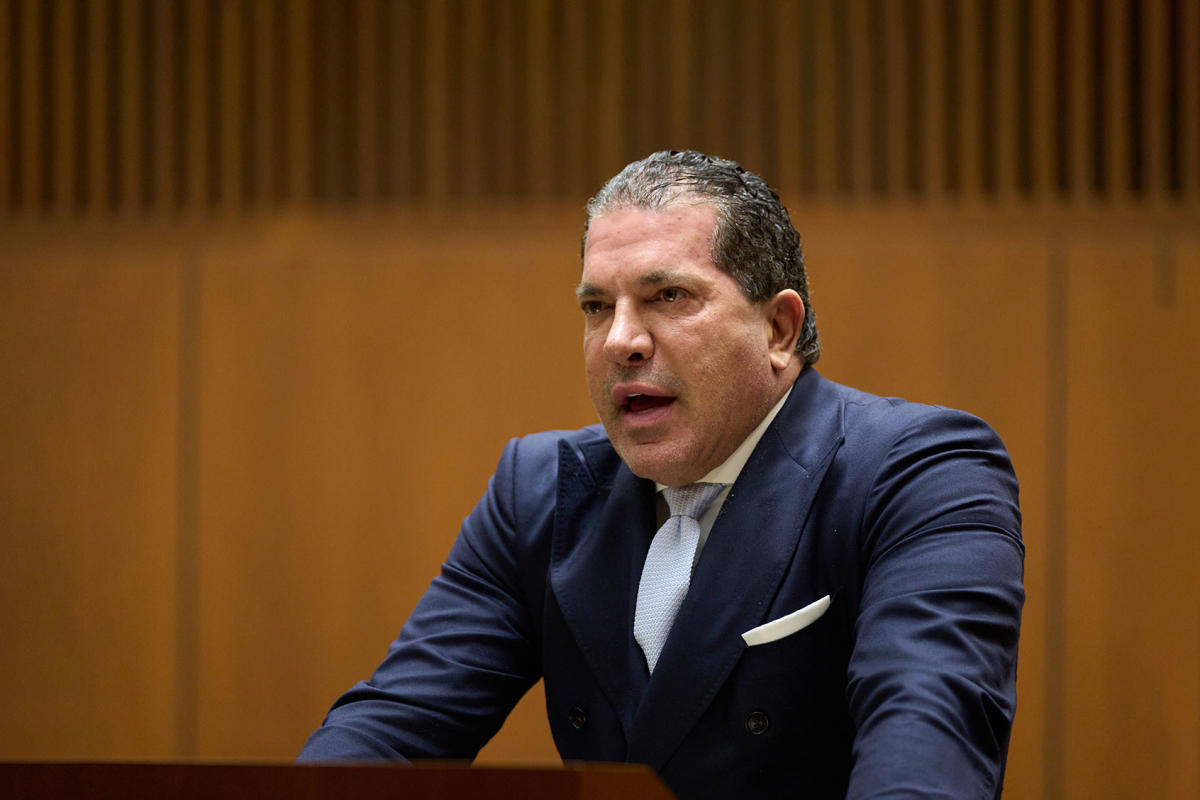Conservative justices on the Supreme Court on Wednesday pressed the Biden administration on whether ambiguous laws passed by Congress should be interpreted by judges, rather than by federal bureaucrats.
The high court’s eventual ruling could hand courts — including the Supreme Court itself — more power to strike down regulations on health care, the environment, immigration and virtually all other policy areas that are administered by federal agencies. That would strip power from the executive branch and make it harder for Joe Biden and future presidents to defend their regulatory agendas against legal challenges.
“It’s the role of the judiciary historically under the Constitution to police the line between the legislature and the executive to make sure that the executive is not operating as a king,” said Justice Brett Kavanagh, a critic of the so-called Chevron doctrine that is under fire.
Justice Neil Gorsuch echoed that sentiment, suggesting that the Biden administration’s solicitor general was unable to precisely explain when courts should defer to a federal agency’s own interpretation of laws that delegate broad authority to that agency.
“Should that be a clue that something needs to be fixed here?” Gorsuch asked Solicitor General Elizabeth Prelogar.
But if the court rules as conservatives have urged them too, judges will be at risk of becoming “uber-legislators,” argued Justice Ketanji Brown Jackson.
At issue is a 40-year-old Supreme Court precedent adopted during a legal battle between the oil industry and environmentalists over a Reagan-era environmental rule. The Chevron doctrine holds that when a statute is ambiguous and a federal agency crafts a regulation based on the agency’s “reasonable” reading of the statute, judges must uphold the regulation.
It was intended to stop judges from overriding the policy or technical expertise of agencies. Supporters also argued that Congress can’t legislate for every possibility and so agencies need the flexibility to act.
Since then, both Democrats and Republicans have used Chevron to defend their agendas. Agencies fare much better under that standard then when courts review actions without deference, studies have found.
But for more than a decade — particularly after Barack Obama used executive action to advance his agenda when Congress failed to pass his laws — conservative legal thinkers have pressed to overturn Chevron. It takes away from judges the ability to decide what the law is, a fundamental checks-and-balances violation, they argue.
The Supreme Court itself has already distanced itself from Chevron. Over the past eight years, the high court has avoided using it to decide a case. Instead, the court’s strengthened conservative majority has moved toward more aggressive standards, including the so-called major questions doctrine, which says Congress must explicitly authorize actions with significant economic or political impacts.
But the high court has stopped short of actually overturning Chevron, leaving it the law of the land for lower courts that settle such cases routinely. In two cases argued Wednesday, the justices are being asked to eliminate Chevron entirely.
Gorsuch, who in 2022 wrote that Chevron “deserves a tombstone no one can miss,” argued that uneven findings of ambiguity in the lower courts is evidence that the high court needs to do something.
If the Supreme Court thinks the lower courts “are too readily finding ambiguity,” they could reiterate that judges should more thoroughly use other tools of interpretation before deciding a statute is ambiguous, Prelogar argued.
“Haven’t we done that like 15 times over the last eight or 10 years?” replied Gorsuch. He noted that the two cases pending at the Supreme Court — both of which concern a commercial fishing rule that requires fishermen to pay for regulatory monitors on their boats — led to disparate findings of ambiguity in the lower courts despite a relatively basic question.
Kavanaugh argued that Chevron doesn’t provide the legal stability that the Biden administration and other supporters of the doctrine argue.
“The reality of how this works, is Chevron itself ushers in shocks to the system,” he said. “Every time a new administration comes in, whether it’s communications law, or securities law or competition law, environmental law,” policies change and statutes are interpreted by the agencies differently.
Jackson pushed back on Kavanaugh’s argument.
“I guess my concern is I suppose judicial policymaking is very stable — but precisely because we are not accountable to the people and have lifetime appointments,” she said.
During arguments, Jackson and the court’s other two liberal justices mounted a full-throated defense of Chevron deference, but it was unclear whether their arguments were persuasive to any members of the six-justice conservative majority.
Justice Sonia Sotomayor noted that agencies, unlike judges, have expertise, experience and knowledge of the consequences of policy choices. “Why shouldn’t deference be given to that?” she asked.
Justice Elena Kagan posed a hypothetical about Congress passing a sweeping law on artificial intelligence.
“Congress knows that there are going to be gaps because Congress can hardly see a week in the future with respect to this subject, let alone a year or a decade in the future,” Kagan said, drawing laughter in the courtroom. Does Congress want the courts or agencies to fill those gaps, she asked Roman Martinez, an attorney at Latham & Watkins who represents the fishermen who are challenging Chevron.
“I don’t think Congress wants the court to do policy. I think Congress wants the court to do its ordinary function, which is interpret the law … and apply the best understanding of the law,” Martinez replied.
Kagan was dissatisfied with that answer.
“What Congress wants, we presume, is for people who actually know about AI to decide those questions,” she said.
The Supreme Court heard more than two hours of arguments on Wednesday morning in the first of the two cases, Relentless v. Department of Commerce.
The court continued on to additional arguments in the second case, Loper Bright v. Raimondo, which raised identical legal questions. However, Jackson recused herself from Loper Bright because she participated in that case when it was before the D.C. Circuit Court of Appeals — though she did not participate in the ultimate ruling there.
Signup bonus from




